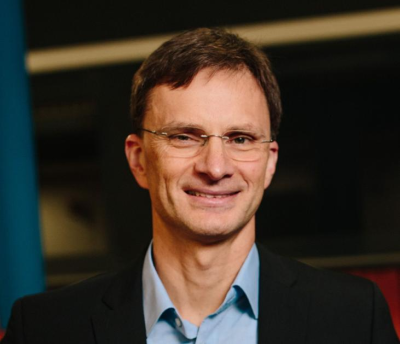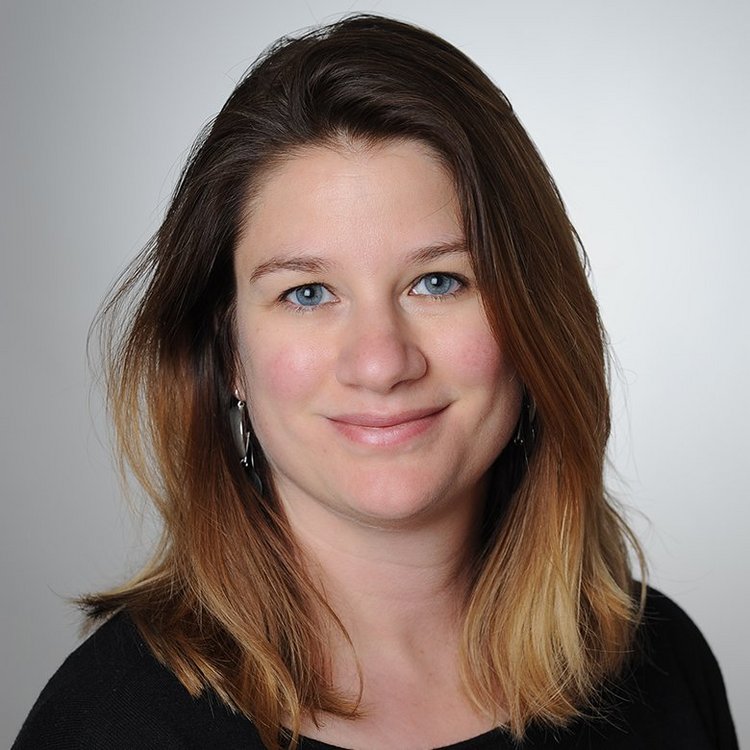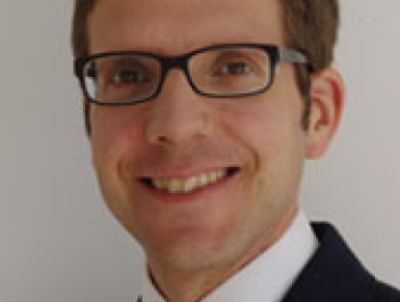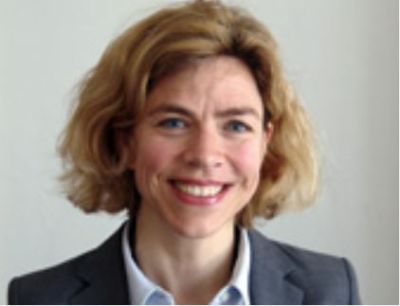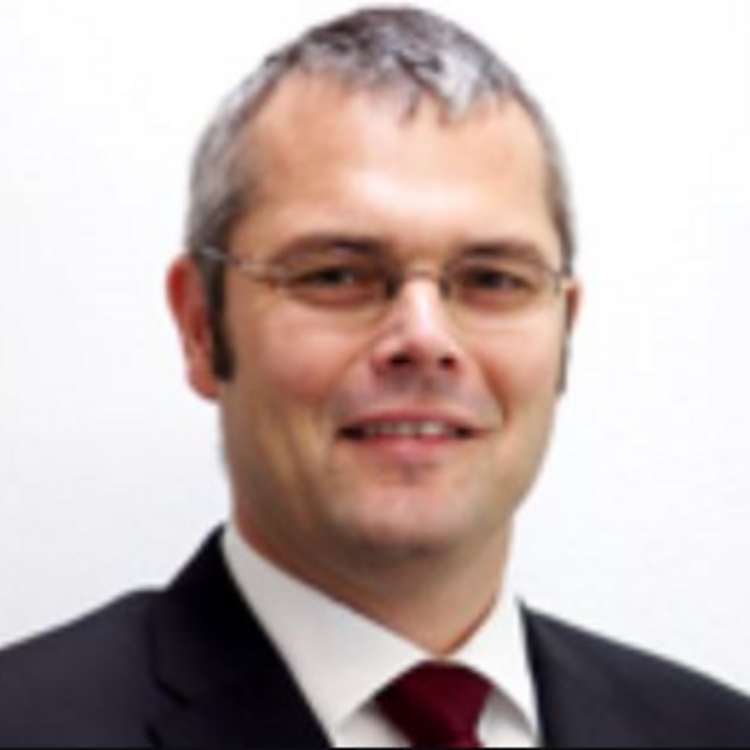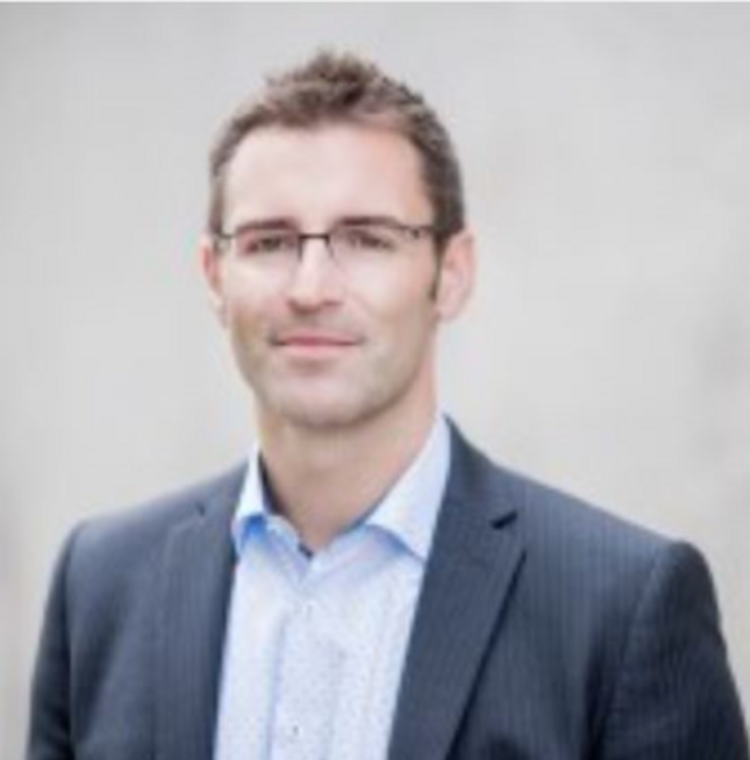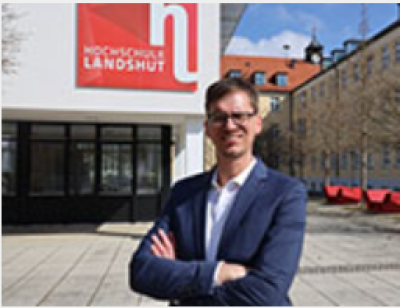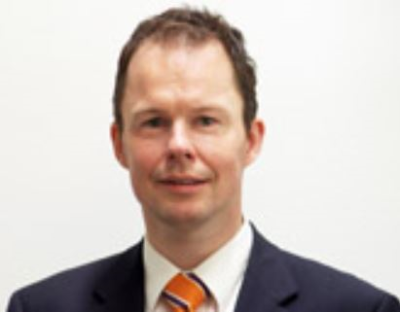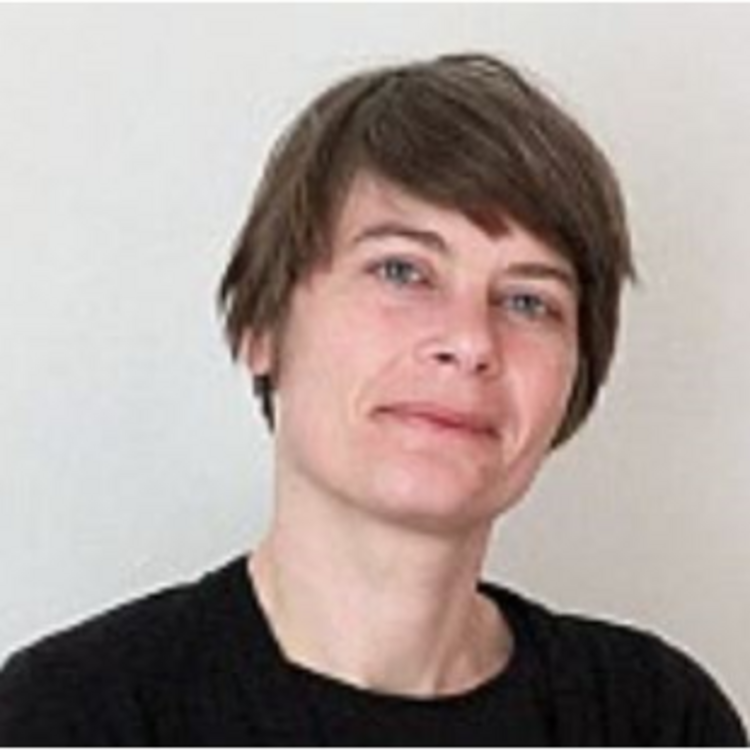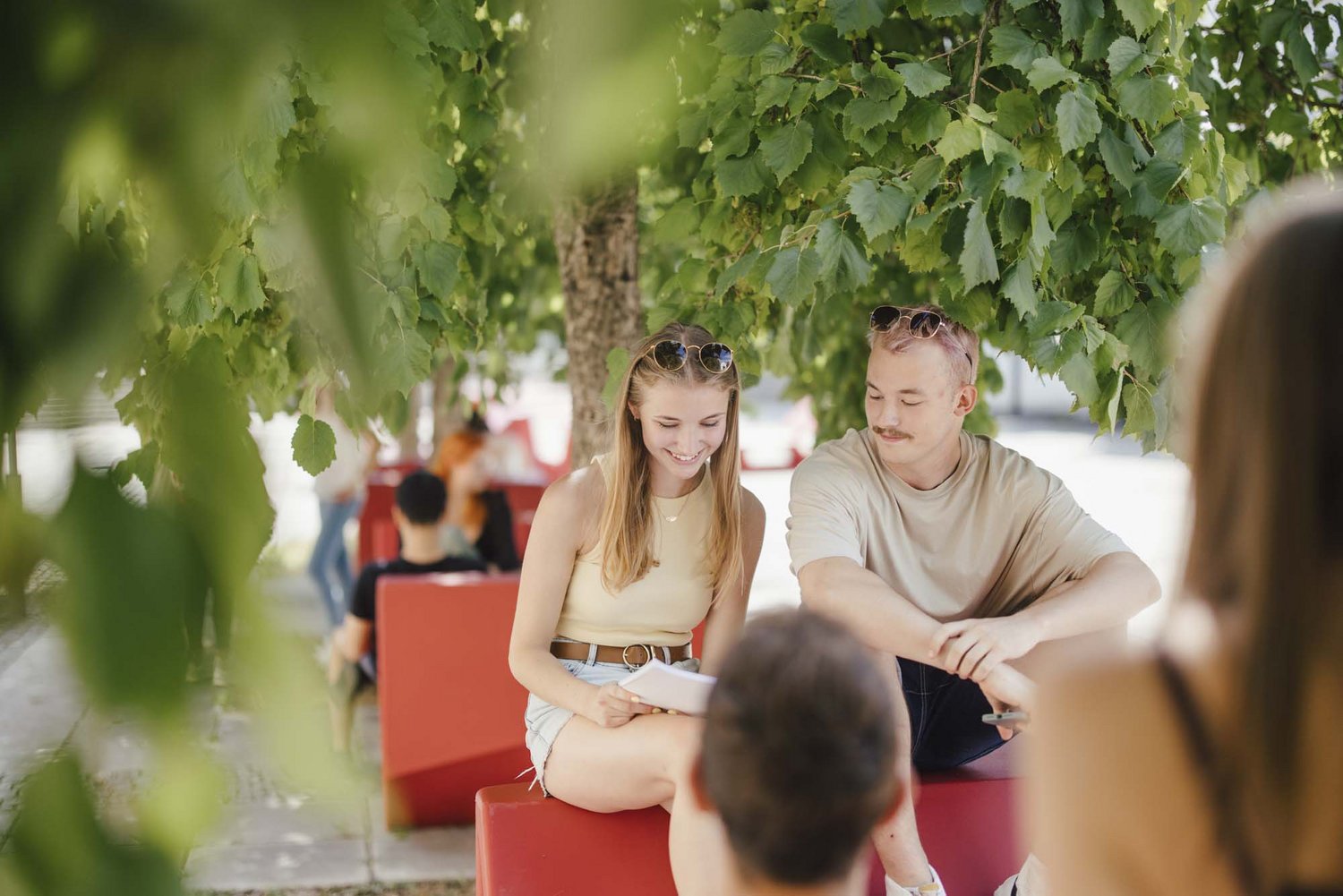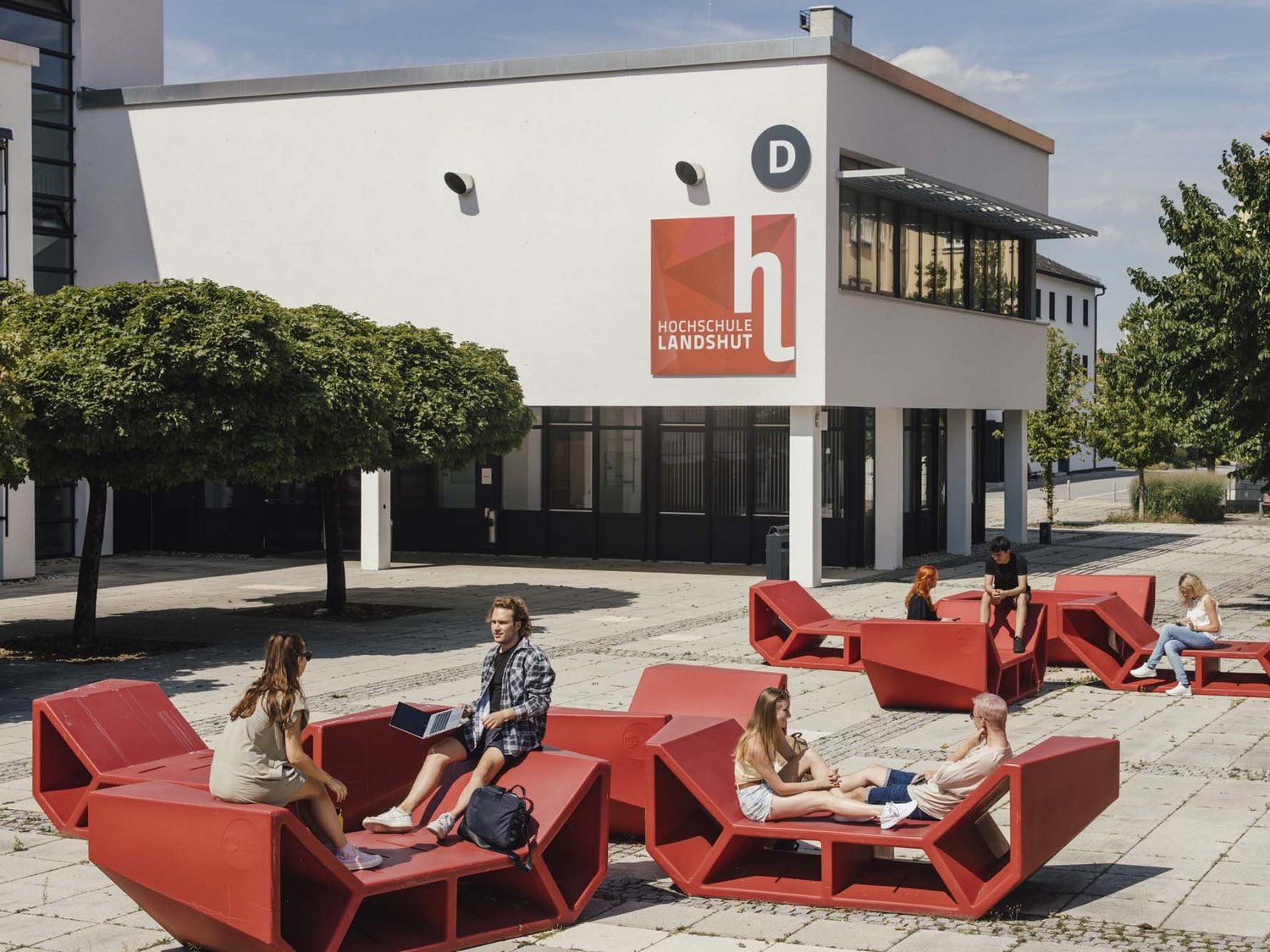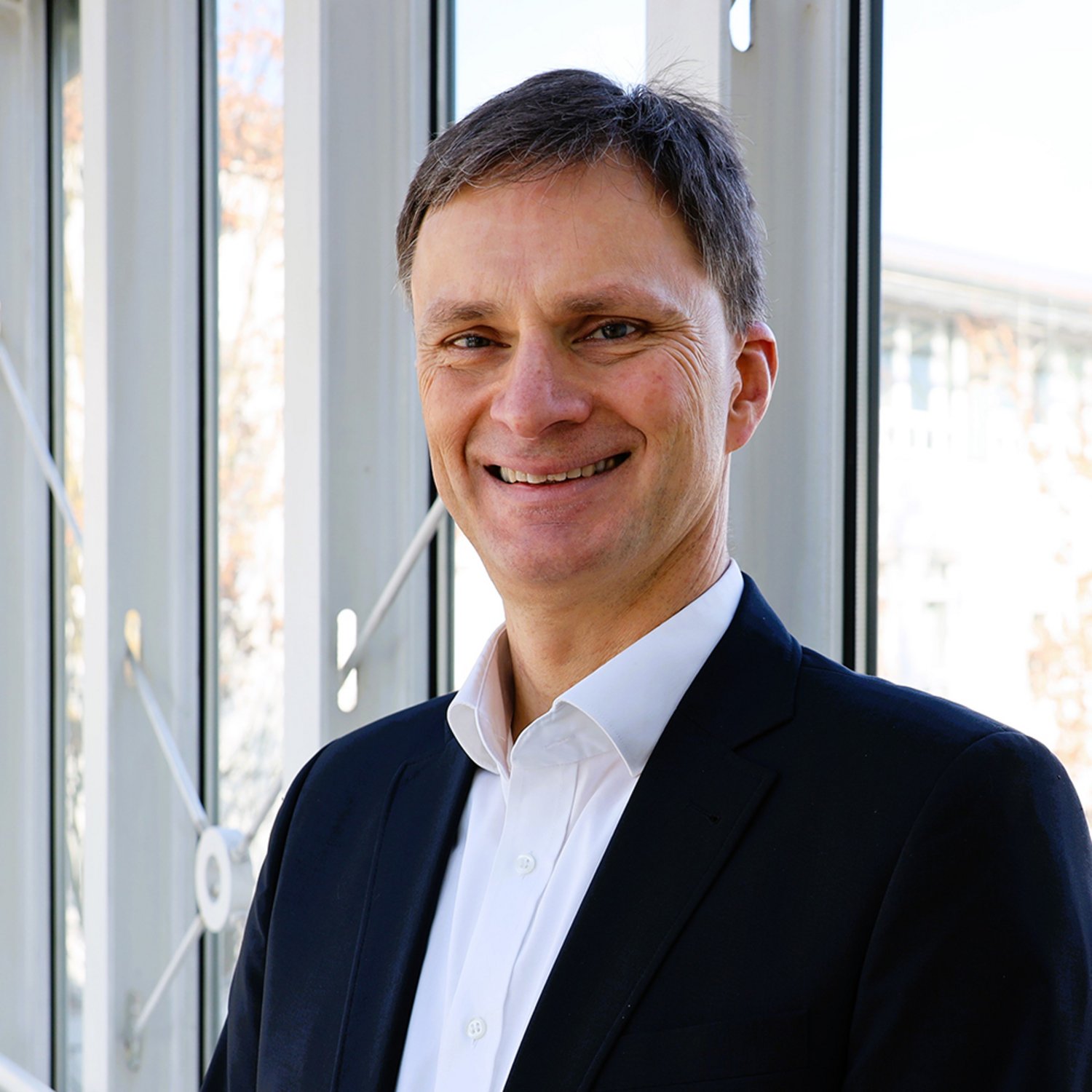
Sustainability and Transformation
Master
Durch umfassendes Fachwissen und einen interdisziplinären Ansatz bilden wir Nachhaltigkeitsexpertinnen und -experten von morgen aus. Studierende aller Fachrichtungen und Studienabschlüsse ergänzen ihren ersten akademischen Berufsabschluss mit Fachwissen der Nachhaltigkeitswissenschaft und werden so zu Neudenkern für Nachhaltige Entwicklung mit einem Abschluss als Master of Science (M.Sc.).
| Start | Winter semester |
|---|---|
| Admission Criteria | Unrestricted admission |
| Application period | 15.04.2025 - 15.08.2025 |
| Study format | Full time, with in-depth practical experience |
| Study cost | None (only semester fee) |
| Normal duration | 3 Semester |
| Language | German |
| ECTS | 90 |
The study programme / profile
Shaping change together with sustainable solutions through interdisciplinary skills: the Master's degree programme is aimed at prospective students with a Bachelor's degree or equivalent from all disciplines who are open to other disciplines and interested in transformative change.
It provides knowledge, skills and competences in sustainability science for holistic system change towards three societal standards: ecological sustainability, social justice and economic performance, qualifying them for interdisciplinary system change in companies, non-profit organisations, public administration and politics, scientific institutions and civil society.
Our students can expect an optimal learning atmosphere thanks to small study groups, personal contact with lecturers and individual support from our student advisory service.
Contents and course of study
The standard period of study is three semesters. Depending on the individual situation, e.g. professional activity, the programme can be spread over up to five semesters. The programme has a modular structure. It teaches the skills required for professional work in sustainability and transformation.
All modules of the degree programme are designed in such a way that students are able to connect to the programme regardless of their previous academic qualifications, provided that they are willing to familiarise themselves with new areas of knowledge and contribute to the educational process of the student group with the professional qualifications they have already acquired.
Prospects after graduation
Sustainable development is the declared goal of all social stakeholders. Companies, non-profit organisations, public administration and politics, scientific institutions and civil society are therefore looking for specialists to professionalise their sustainability transformation. The career prospects are therefore excellent and varied.
Requirement profile
The Master's programme is aimed at prospective students with a Bachelor's degree or equivalent from all disciplines who are open to other disciplines and interested in transformative change.
You want to
- apply sustainable development, not just talk about it
- build a solid professional foundation in ecology, social affairs and economics
- get to know your room for manoeuvre - culturally, politically, economically and technologically
- understand the key areas of transformation in the coming decades - resources, energy, mobility, prosperity and consumption, industry, cities and the countryside
- think and act beyond today's mainstream
- qualify - for the sustainability management of today, but also for the coming decades
- acquire a second professional qualification that perfectly complements your first?
Then this degree programme is just right for you!
Admission requirements
All subject areas with a Bachelor's degree or equivalent with 210 ECTS points or with 180 ECTS points and further proof of 30 ECTS points (e.g. through further examinations at universities or through qualified professional experience of a continuous 6 months full-time) are eligible.
In the case of first degrees without ECTS credit points (e.g. Diplom, Magister, state examination), proof of examinations and/or practical experience of at least seven semesters must be provided.
Learn moreShape (Y)our Future
Shape your future and ours - with a degree programme in electrical engineering, industrial engineering or sustainability! Our students deal with future-oriented study content on sustainability, digitalisation and electrification - in an optimal learning atmosphere thanks to small study groups, personal contact with our lecturers, lots of practical experience and strong networking with our partners from business, science, civil society and politics.
It is important to distinguish whether you are applying for a Bachelor's or Master's degree programme. There is also a difference as to whether the Bachelor's degree programme is admission-free or admission-restricted (with NC). Further information on the application and admission procedure can be found here.
The university determines the number of places to be allocated for individual degree programmes. From the applications received for places on degree programmes with restricted admission, the best students from various groups (Abitur, Fachabitur, master's degree, second degree, etc.) are admitted according to a ranking list until the number of places to be allocated is reached. The NC (Nurmerus Clausus, average grade for admission) is calculated each year from the average grade of the last university place awarded. Experience shows that the NC fluctuates considerably from year to year when there are only a few study places to be allocated and cannot be predicted in advance of admission. It is therefore not the grade point average required for admission that is specified in advance, but the number of study places to be allocated.
Depending on whether you have already studied something similar or the same degree programme elsewhere, you either apply for a higher semester or start a new degree programme in the first semester. If you apply for a higher semester, the creditable examination results in particular determine whether you can be admitted. More information here.
If you can prove that you have already acquired comparable skills - either through professional experience or as part of a previous degree programme - you can apply to have these recognised. The application must be submitted to the Student Service Centre and will then be reviewed by the relevant examination board. You will be informed of the decision after approx. 2-3 weeks. The application can be found here.
Once you have registered in the applicant portal and uploaded your documents, you will be kept up to date on the progress of your application. If something is missing or incorrect, which would lead to exclusion from the award procedure, you will also be notified there. The letter of admission is also available for download there. Click here to go to the applicant portal.
As part of the application process, if you accept the study place offer, you must contact your health insurance company and inform them that you intend to start studying at Landshut University of Applied Sciences. The health insurance company will then confirm directly to us via a digital message that health insurance cover is in place. If you have private health insurance, you must consult a statutory health insurance company and request confirmation of exemption. This will also be reported to us digitally. Information on health insurance during your studies can be found here.
By paying the student union fee, which must be paid before starting your studies and then once per semester, you acquire a semester ticket. This semester ticket entitles you to use local public transport in the area covered by the Landshut Transport Association (LAVV). The semester ticket is printed on the student ID card and must be presented without being asked before travelling. Details can be found here.
The student ID card is sent to you by post before you start your degree programme. You can use your student ID to pay in the canteen or use the 24-hour library, for example. The semester ticket is also printed on the student ID card. The student ID card must be revalidated for the following semester after re-registration. You can find out more here.
For all degree programmes that are not part of the continuing education academy, there are generally no tuition fees. Irrespective of this, the student union fee must be paid once per semester. This solidarity contribution provides financial support for the canteen or the student halls of residence of the Studentenwerk Niederbayern/Oberpfalz, for example. The semester ticket is also included. Further information here.
We would like to invite all prospective students to our information events on campus! In addition to the study information day, there are also smaller online and face-to-face events such as the university podcast or the applicant day and much more, where you can get detailed information about degree programmes and Landshut University of Applied Sciences. Our counselling services can also be used for personal consultations at any time.
At the start of their studies, our first-year students are warmly welcomed and provided with all the necessary information. You will be given an introduction to how the university platforms work, the lecture timetable, the Studium Generale and much more!
BAföG is administered by the Studentenwerk Niederbayern/Oberpfalz. This is located in Regensburg. You can either go there directly or contact the BAföG counselling centre of the Studentenwerk N/O in the E building.
Landshut University of Applied Sciences and the Studentenwerk Niederbayern/Oberpfalz offer students free psychological counselling in difficult life situations. You are welcome to get in touch with the contact persons at any time.
Attractive companies advertise study-related jobs such as internships, student traineeships and entry-level positions on the university job exchange. In addition, the part-time job exchange offers a variety of mini and holiday jobs to finance your studies.
The Studentenwerk Niederbayern/Oberpfalz currently manages three public student halls of residence in the immediate vicinity of the university. There are also six other halls of residence run by private organisations. More information here.
Information for students
How does the study programme start? Where can I find all the important information about my degree programme? We have provided our students with all the important and relevant information and links.
Learn more





